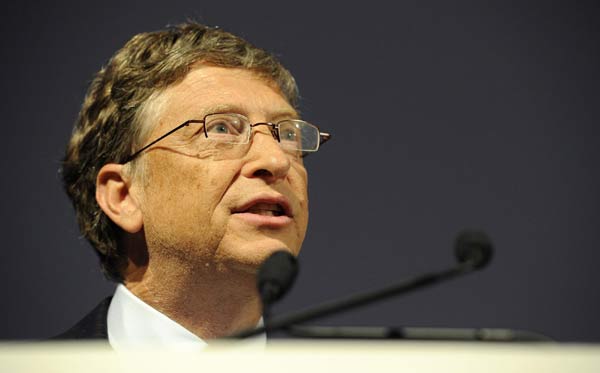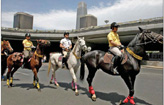Society
UK, Gates pledge $2.3 b for vaccines for poor
Updated: 2011-06-13 20:47
(Agencies)
 |
|
Billionaire philanthropist Bill Gates speaks at the Global Alliance for Vaccines and Immunisation (GAVI) conference in London June 13, 2011. Britain and Gates pledged $2.3 billion at an international donor conference on Monday to fund vaccination programmes to protect children in poor countries against diseases like diarrhoea and pneumonia. [Photo/Agencies]
|
Norwegian Prime Minister Jens Stoltenberg said his country would double its annual contribution to $180 million by 2015 to help fund an international campaign to combat common diseases that kill millions of children in the developing world.
The money adds to a pledge on Sunday by Australia's Foreign Minister Kevin Rudd, who said his country would donate $210 million to the Global Alliance for Vaccines and Immunisation (GAVI) over three years until 2013.
More donors, including the United States, France, Germany, Japan and others, are expected to add their pledges later on Monday in an effort to stump up an extra $3.7 billion that GAVI needs to fund its programmes though to 2015.
"Britain will play its full part. In addition to our existing support for GAVI, we will provide 814 million pounds ($1.33 billion) of new funding up to 2015," British Prime Minister David Cameron told the conference, winning a standing ovation from the audience. "This will help vaccinate over 80 million children and save 1.4 million lives."
Billionaire philanthropist and Microsoft co-founder Gates, a major GAVI backer who helped set up the alliance more than a decade ago, also announced more funding.
"We are pledging an additional billion dollars," Gates said, adding that the money would be spread over the next five years.
"It's not every day that we give away a billion, but for a cause like this it's exciting to be doing this."
A millions lives a year
Gates said the money pledged on Monday would buy vaccines that would save over a million lives each year.
Cameron, who has faced criticism in Britain for ring-fencing international aid at a time when domestic spending is being slashed to cut a gaping budget deficit, defended his decision.
"When you make a promise to the poorest people in the world -- you should keep it," he told the conference.
GAVI says it has helped prevent more than 5 million child deaths in the last decade with its immunisation programmes and will prevent 4 million more by 2015 with the necessary funds.
The alliance funds bulk-buys of childhood vaccines against diseases such as pneumococcal pneumonia, Haemophilus influenzae type b, or Hib disease, diphtheria, pertussis or whooping cough, tetanus, measles and rotavirus.
The World Health Organisation considers vaccination to be "one of the most successful and cost-effective public health interventions". It estimates that between two and three million deaths are averted each year through immunisation.
A series of academic studies published last week found that if 90 percent of children in the more than 70 poor countries supported by GAVI were fully immunised, some 6.4 million children's lives and more than $151 billion in treatment costs and lost productivity could be saved over 10 years, producing economic benefits of $231 billion.
Specials

Wealth of difference
Rich coastal areas offer contrasting ways of dealing with country's development

Seal of approval
The dying tradition of seal engraving has now become a UNIVERSITY major

Making perfect horse sense
Riding horses to work may be the clean, green answer to frustrated car owners in traffic-trapped cities